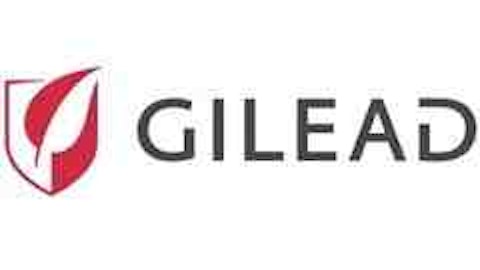After the failure of its pipeline products for Alzheimer’s and rheumatoid arthritis, the drug giant Eli Lilly & Co. (NYSE:LLY) finally has some good news to report. Releasing top-line results for its type II diabetes experimental drug dulaglutide, the company announced that patients taking the drug had manageable side effects, showed better blood sugar control, and lost more weight compared to existing drugs.
If Lilly gains FDA approval for dulaglutide later this year, the drug could hold a lot of promise for the company, which has been among the worst hit by the so-called patent cliff.
Dulaglutide and diabetes drugs
Dulaglutide is a long-acting glucagon-like peptide 1 (GLP-1) receptor agonist that Eli Lilly & Co. (NYSE:LLY) has been studying as once-weekly treatment for type II diabetes. It works the same way as a certain digestive hormone, which stimulates the pancreas to produce insulin after food intake in order to control sugar level in blood.
Roughly 350 million worldwide and 26 million people in the U.S. have diabetes. Type I diabetes is where the body does not produce insulin at all; it accounts for 10% of all diabetics. Type II diabetes, where the body produces (or can utilize) less than the required amount of insulin, is the most common variety, accounting for about 90% of all cases.
In the safety and efficacy results announced on June 22, Lilly reported better results for dulaglutide compared to patients on Merck & Co., Inc. (NYSE:MRK)’s Januvia (sitagliptin) and Bristol Myers Squibb Co. (NYSE:BMY)’s Byetta (exenatide).
Besides Merck and (NYSE:MRK) Bristol, dulaglutide is also expected to compete with Victoza (liraglutide) from Novo Nordisk A/S (ADR) (NYSE:NVO). Liraglutide is another GLP-1 analog approved by the FDA and EMA for treatment of type II diabetes. Victoza, which contributed $1.64 billion to the company’s revenues last year, is scheduled for comparison with dulaglutide by the end of the year.
Two months ago, on March 29, the FDA approved another drug for treatment of type II diabetes – Invokana (canagliflozin) from Johnson & Johnson (NYSE:JNJ). It’s part of a new class of drugs known as sodium-glucose co-transporter-2 (SGLT2) inhibitors, which work to lower blood sugar levels by blocking absorption of glucose and increasing excretion through urine.
What does dulaglutide mean for Eli Lilly?
There is a lot riding on the success of dulaglutide. With the patent loss of its blockbuster drugs Zyprexa and Cymbalta, and competition from generic versions looming large, Eli Lilly & Co. (NYSE:LLY) needs a new blockbuster drug very badly.
Although physicians are likely to keep using existing drugs, including metformin, for type II diabetes patients, a once-weekly injectable drug like dulaglutide cannot be easily shrugged off. However, there are questions regarding how different it is from existing treatments.
Dulaglutide belongs to the same class as exenatide (Byetta), which Eli Lilly & Co. (NYSE:LLY) developed way back in 2005 in partnership with Amylin Pharmaceuticals – a partnership that led to a nasty breakup, and eventually ended with Bristol-Meyers and AstraZeneca plc (ADR) (NYSE:AZN) buying Amylin Pharmaceuticals .
There is a risk that dulaglutide may suffer the same fate as Sanofi SA (ADR) (NYSE:SNY)’s Lyxumia did at the hands of the German pricing regulators, who did not see any additional benefit in it compared to existing drugs. The risk is real because Bristol and AstraZeneca also offer Bydureon, a once-weekly version of Byetta.
There are also concerns of the effect of GLP-1 drugs on the pancreas. During trials, nine patients developed pancreatitis. There was, however, no increase in inflammatory conditions, nor was there any case of hypoglycemia, or low blood sugar. This is good because other type II diabetes molecules like metformin are known to cause both pancreatitis and hypoglycemia. I should also mention that there were two cases of pancreatic cancer in the trial sample — but it is highly unlikely that they were caused by intake of dulaglutide.
In addition, the company has chosen to underplay benefits of weight loss provided by dulaglutide. Patients taking the highest dose of the drug experienced a weight loss of 2.9 kilograms over two years, which is more than the 1.8 kilograms lost by patients taking Merck’s Januvia. It is interesting to note that Novo Nordisk intends to market Victoza, which is in the same class as dulaglutide, as a treatment for obesity.
Investors’ view
There is a lot of promise for a new type II diabetes treatment, especially for a once-weekly injection. Despite the presence of earlier drugs in the same class, and a similar once-weekly offering from Bristol and AstraZeneca, dulaglutide holds a slight advantage because of its lesser side effects and increased weight loss.
Analysts expect dulaglutide to generate $835 million by 2018. This could be a healthy addition to Eli Lilly & Co. (NYSE:LLY)’s revenues, which are now at risk from patent expirations.
Dr. Kanak Kanti De has no position in any stocks mentioned. The Motley Fool recommends Johnson & Johnson. The Motley Fool owns shares of Johnson & Johnson.
The article Is This What the Doctor Ordered for Eli Lilly? originally appeared on Fool.com.
Copyright © 1995 – 2013 The Motley Fool, LLC. All rights reserved. The Motley Fool has a disclosure policy.






